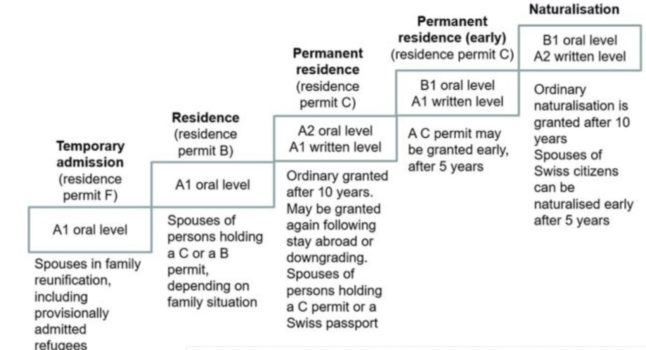After three years of cooking for guests at the luxury resort on the Bürgenstock, top Thai chefs, twin sisters Vilai and Virat Kanjan, have had to leave Switzerland after failing to master German. They now work in… Germany.
As the Swiss media reported this week, the canton of Nidwalden, where the Bürgenstock resort is located, did not renew the sisters’ work permits.
Since both come from a third country – Thailand – the canton required them to provide a language certificate, attesting to their A2-level proficiency in German.
As defined by the Common European Framework of Reference for Languages, to which Switzerland adheres, this level means a person “can communicate in simple and routine manner and exchange information on familiar topics.”
The sisters took the test three times and failed them all, prompting the canton to revoke their permits.
“Proof of recognised language is always required when linguistic integration is examined as part of an authorisation procedure,” the canton of Nidwalden told Blick, defending its move to not renew their permits.
Ironically Nidwalden’s loss is Germany’s gain. The two sisters are now working at Schloss Elmau, a 5-star resort in Bavaria, where German is apparently not needed.
‘A chef has to cook, not talk’
This decision sparked a number of reactions – both for and against the permit revocation.
As Blick reports, one of its readers commented that “the restaurant industry is suffering from a staff shortage, and yet they’re throwing skilled workers out of the country. Does every foreigner speak fluent German? A chef has to cook, not talk.”
But others are less sympathetic toward the fired chefs.
“It is shameful that the two refused to adapt at all. That’s definitely unacceptable. Anyone who wants a job here in Switzerland must be able to communicate in our national languages,” said one reader
And another reader pointed out that the “A2 is an elementary level. They were here for three years; you can certainly expect a minimum level of German.”
Advertisement
What language skills are required of foreign nationals?
One of the key requirements that most foreign nationals must fulfil to receive a B permit, upgrade their B permit to a C permit, or apply for naturalisation, is the knowledge of the national language of the canton where they reside.
According to the State Secretariat for Migration (SEM), “knowledge of a national language is a basic requirement for the successful integration into working and social life.”
Therefore, “all persons applying for family reunification, a residence or permanent residence permit, or regular or early naturalisation, must prove their knowledge of a national language.”
This is what SEM’s requirements look like, with the rules for spoken proficiency higher than for written ones.

SEM
This is what different levels mean:
A1 A2 : Beginners
B1 B2 : Intermediate
C1 C2 : Advanced
Advertisement
These are the federal rules; cantons can impose tougher language requirements on their foreign residents.
A number of them do – including Nidwalden:
READ ALSO: Do all cantons have the same language rules for Swiss citizenship?
